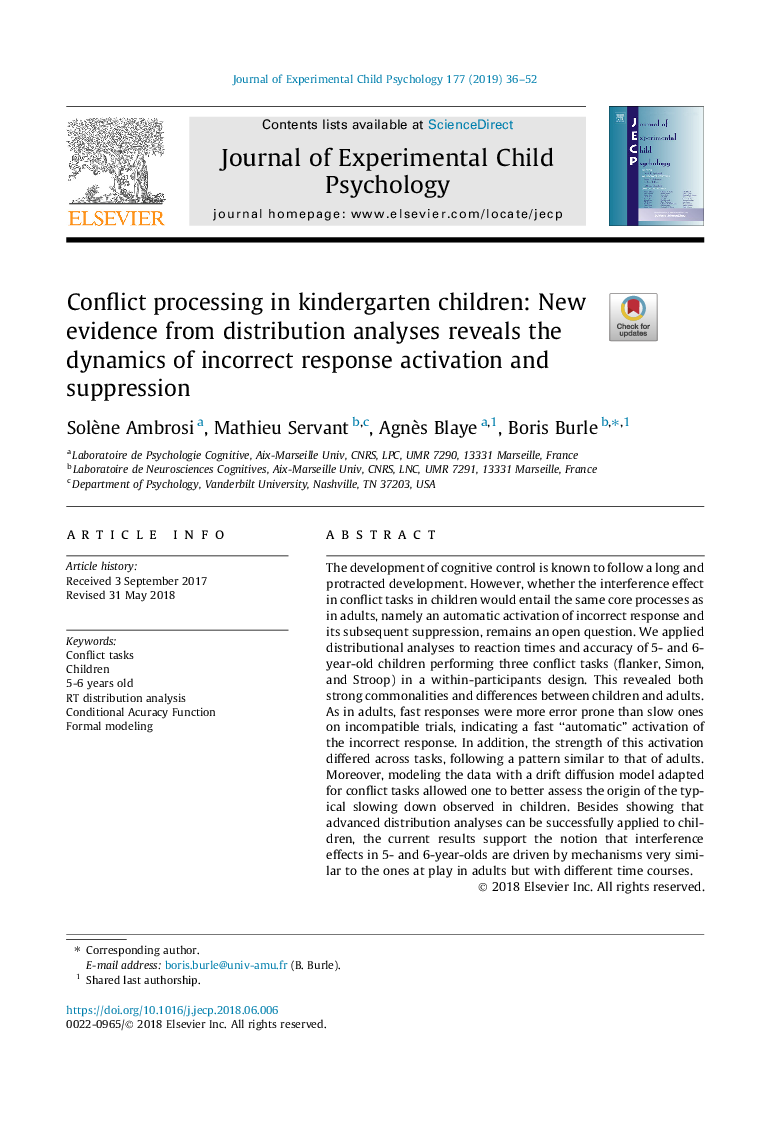| Article ID | Journal | Published Year | Pages | File Type |
|---|---|---|---|---|
| 8954511 | Journal of Experimental Child Psychology | 2019 | 17 Pages |
Abstract
The development of cognitive control is known to follow a long and protracted development. However, whether the interference effect in conflict tasks in children would entail the same core processes as in adults, namely an automatic activation of incorrect response and its subsequent suppression, remains an open question. We applied distributional analyses to reaction times and accuracy of 5- and 6-year-old children performing three conflict tasks (flanker, Simon, and Stroop) in a within-participants design. This revealed both strong commonalities and differences between children and adults. As in adults, fast responses were more error prone than slow ones on incompatible trials, indicating a fast “automatic” activation of the incorrect response. In addition, the strength of this activation differed across tasks, following a pattern similar to that of adults. Moreover, modeling the data with a drift diffusion model adapted for conflict tasks allowed one to better assess the origin of the typical slowing down observed in children. Besides showing that advanced distribution analyses can be successfully applied to children, the current results support the notion that interference effects in 5- and 6-year-olds are driven by mechanisms very similar to the ones at play in adults but with different time courses.
Keywords
Related Topics
Social Sciences and Humanities
Psychology
Developmental and Educational Psychology
Authors
Solène Ambrosi, Mathieu Servant, Agnès Blaye, Boris Burle,
